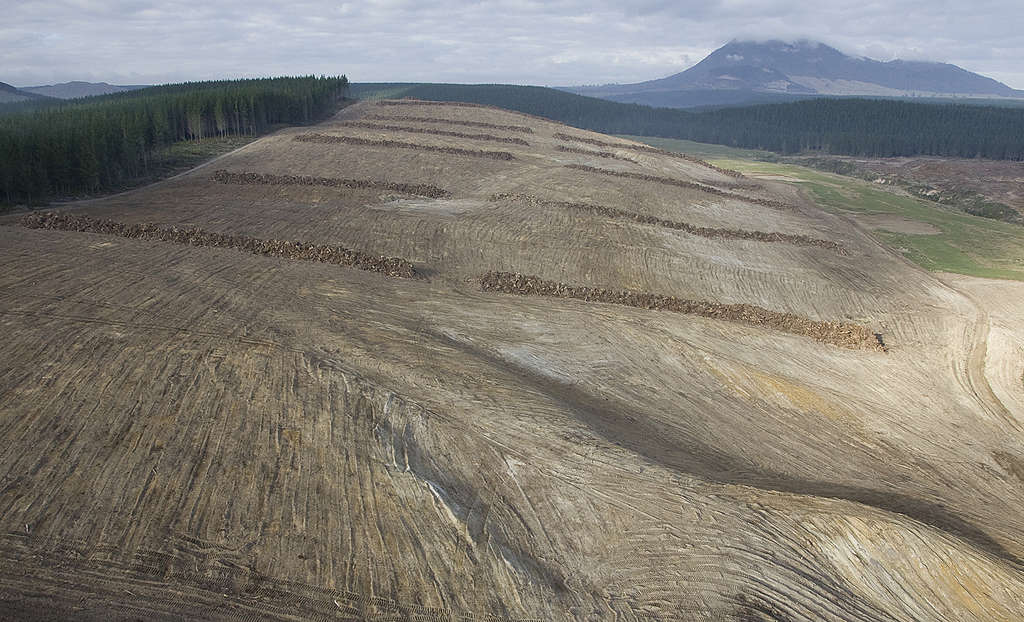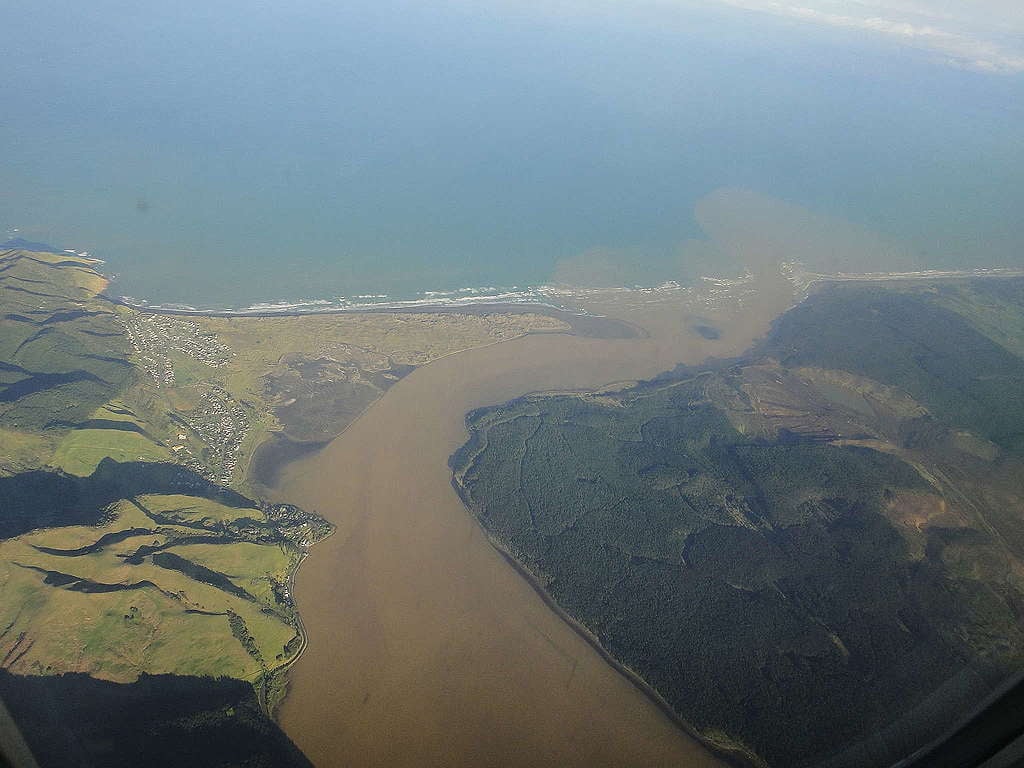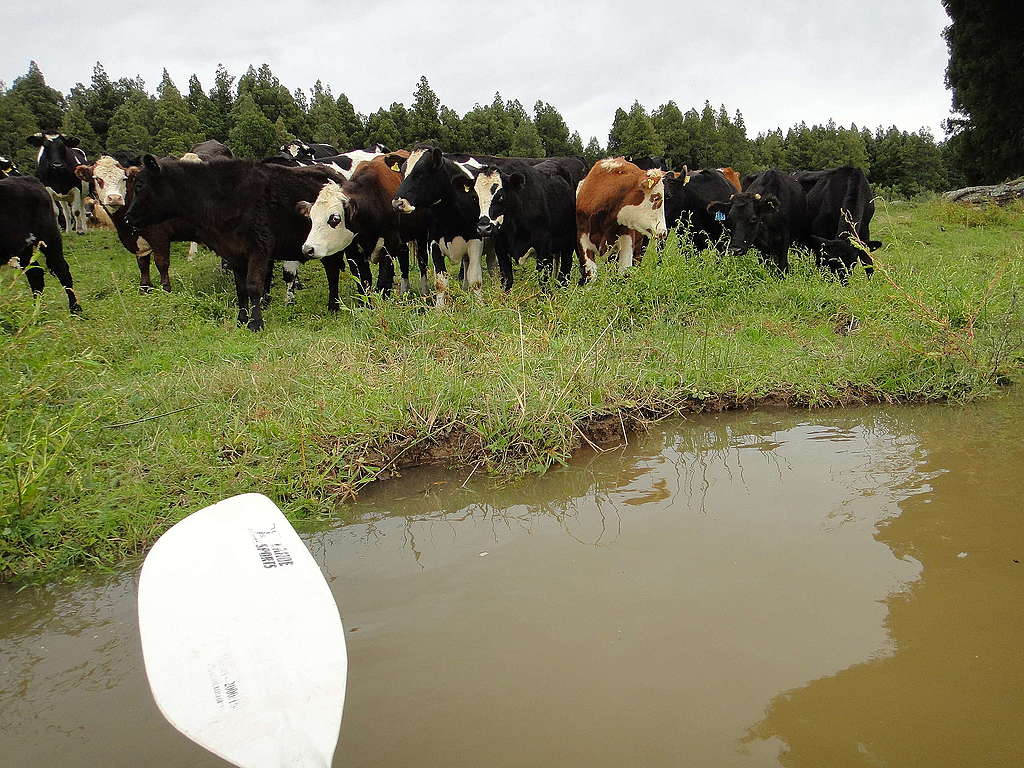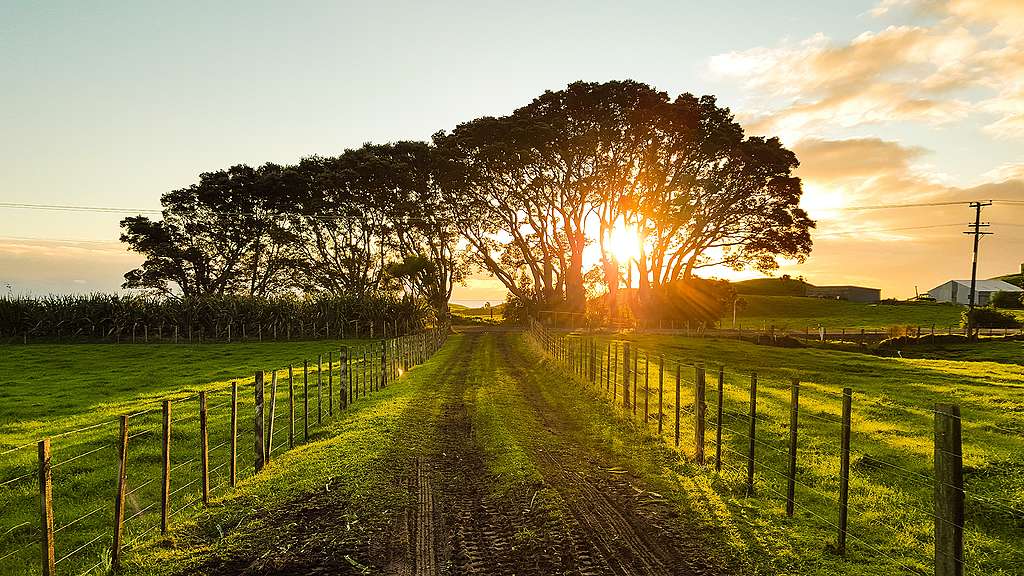Should one big dairy corporation, owned by millionaire rich-listers, be allowed to take more water from the Waikato River than the entire city of Auckland? We say NO WAY!
An exclusive Greenpeace investigation has uncovered that Wairakei Pastoral Limited – a dairy company owned by elite Auckland property investors – has the rights to take more water from the Waikato River than Auckland drinking water supplier, Watercare. Wairakei Pastoral is owned by ten (very rich) people.
Now, Watercare gets water from other sources, too. But especially in times of drought, like now, Watercare relies on water taken from the Waikato River for a third of Auckland’s drinking water.

Just how much water is Wairakei Pastoral taking from the Waikato?
Information released to Greenpeace from the Waikato Regional Council shows that Wairakei Pastoral can take up to 153 million litres per day from the Waikato River. Watercare has the right to take around 152 million litres per day, which is about about a third of Auckland’s total supply in the last 12 months.
A million and a half Aucklanders are doing their bit by carefully conserving water. Schools are turning off sprinklers. People are growing their veggies with water from the washing machine or the bath. And yet here’s a giant dairy corporation taking more water than everyone else in Auckland combined, all so they can make more milk powder and turn a quick buck.
One and a half million Aucklanders have to compete with ten wealthy owners of a dairy company to get their drinking water from the Waikato River.
As the climate crisis intensifies, it’s likely we’ll see more frequent and intense droughts. The Mad Max idea of ‘water wars’ hits a little too close to home at the moment, with Hawkes Bay facing yet another parched summer and Northland residents having to buy in water by the tankful. According to the UN, as many as 5 billion people worldwide could experience water shortages by 2050.
When water becomes a precious resource, how do we ensure that everyone can access the clean water they need to survive?
First school week and its hot. School usually runs the sprinklers for the kids to cool down, but there is the water shortage… meanwhile a dairy company Wairakei Pastoral can take more water from the Waikato River than all 1.5 million Aucklanders. https://t.co/spjz4BPBLf
— Russel Norman (@RusselNorman) February 4, 2021
Under our current model, dairy company profit comes before the health of the river or even drinking water for a million and half Aucklanders. Profit trumps planet and people. This is totally arse about—water should be used firstly for the animals and plants that live in the river, secondly for human drinking water, with commercial users much further down the list. Planet and people first, then profit later.

What happens to the water that Wairakei Pastoral takes?
The second question we need to ask is around what happens with the water that’s being used. When companies like Wairakei Pastoral take that much water, you’d hope they’d look after it, right?
Frustratingly, this is another case of a big agribusiness taking what they want and polluting it, with no regard to other users. We’ve seen it before with rivers ruined by run-off and high-country landscapes turned lurid green from irrigation.
Wairakei Pastoral uses the water for irrigation and other dairy operations, then discharges tonnes of pollution into the Waikato River catchment. It has also applied to discharge thousands of litres of nitrate pollution more. Yep, that’s right – they’re taking huge amounts of water from the river, adding pollution, and then putting some of it back into the river, upstream of where Auckland gets its water.
Nitrate pollution from dairying comes from both cow urine and faeces, and synthetic nitrogen fertiliser. Nitrates in drinking water have been linked to an increased rate of bowel cancer—which is worrying, given that New Zealand has one of the highest rates of colorectal cancers in the world.
The nitrates then lead to growth of algal blooms and toxic blue green algae. Aucklanders have to pay millions to have all the algae (etc) removed from the water before it’s safe to drink—though it is impossible to remove the nitrates themselves.

There’s a pattern emerging here—we see it with water, climate action, and even plastic waste. People like you and I are studiously doing our best we can for our rivers, climate and oceans, by taking shorter showers, stopping watering the garden, driving less and cutting down on the rubbish we produce. And yet big businesses get a free pass to keep polluting and endangering others.
For too long, the dairy industry in New Zealand has been permitted to keep growing and growing, using more and more resources. The number of dairy cows in New Zealand has doubled since 1990. Now this bloated industry claims it’s too big and too important to change course.
We need everyone to stand up against the polluting corporations that claim they can’t possibly do business without polluting. We need Government and councils to bring in strong regulations that penalise pollution and allocate resources fairly. We need support for farmers that are changing how they farm so they can grow food in a way that cares for our rivers, climate and communities.
We need to put planet and people before profits.

Call on Christopher Luxon to set up a billion dollar fund to transition New Zealand away from industrial to regenerative agriculture.
